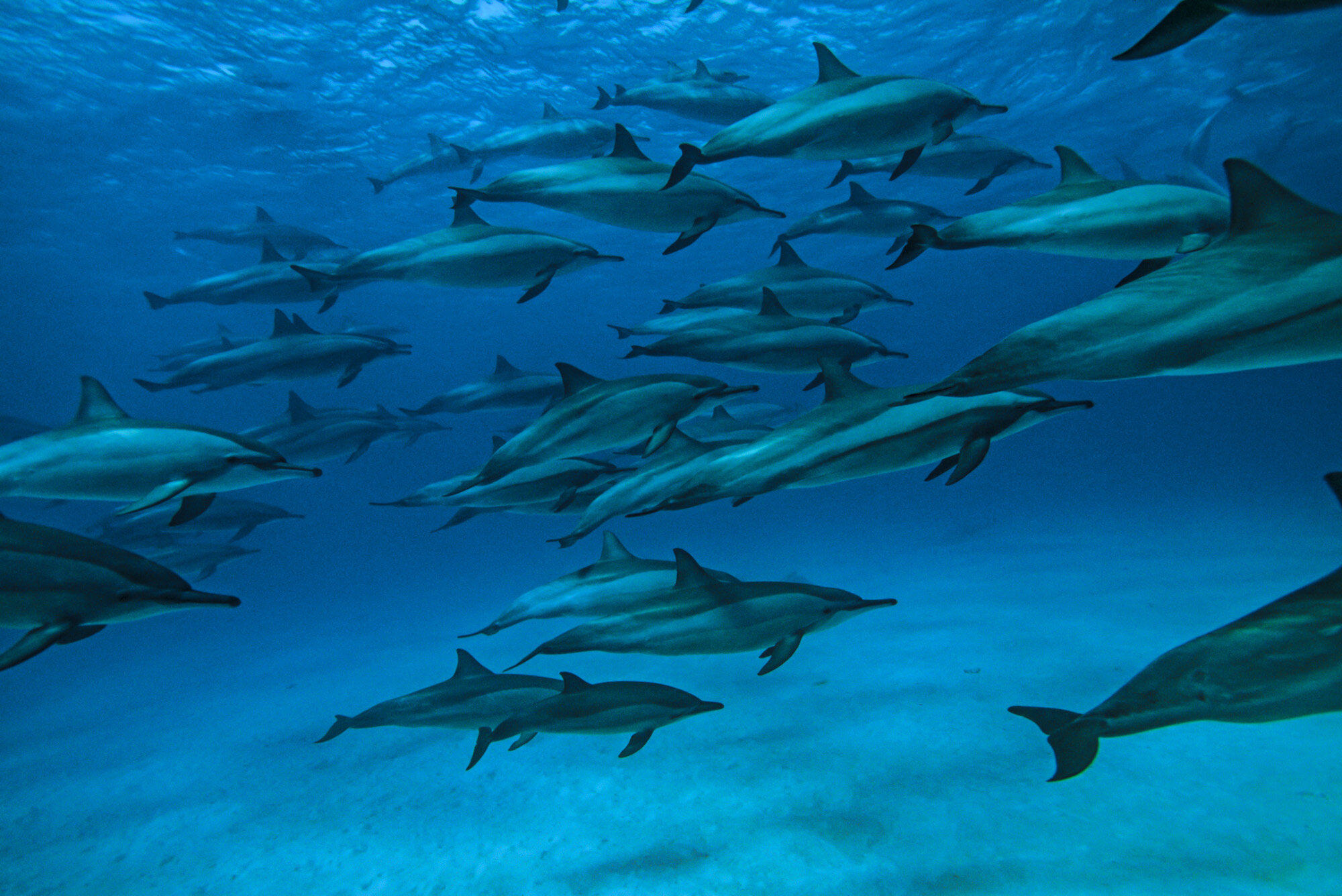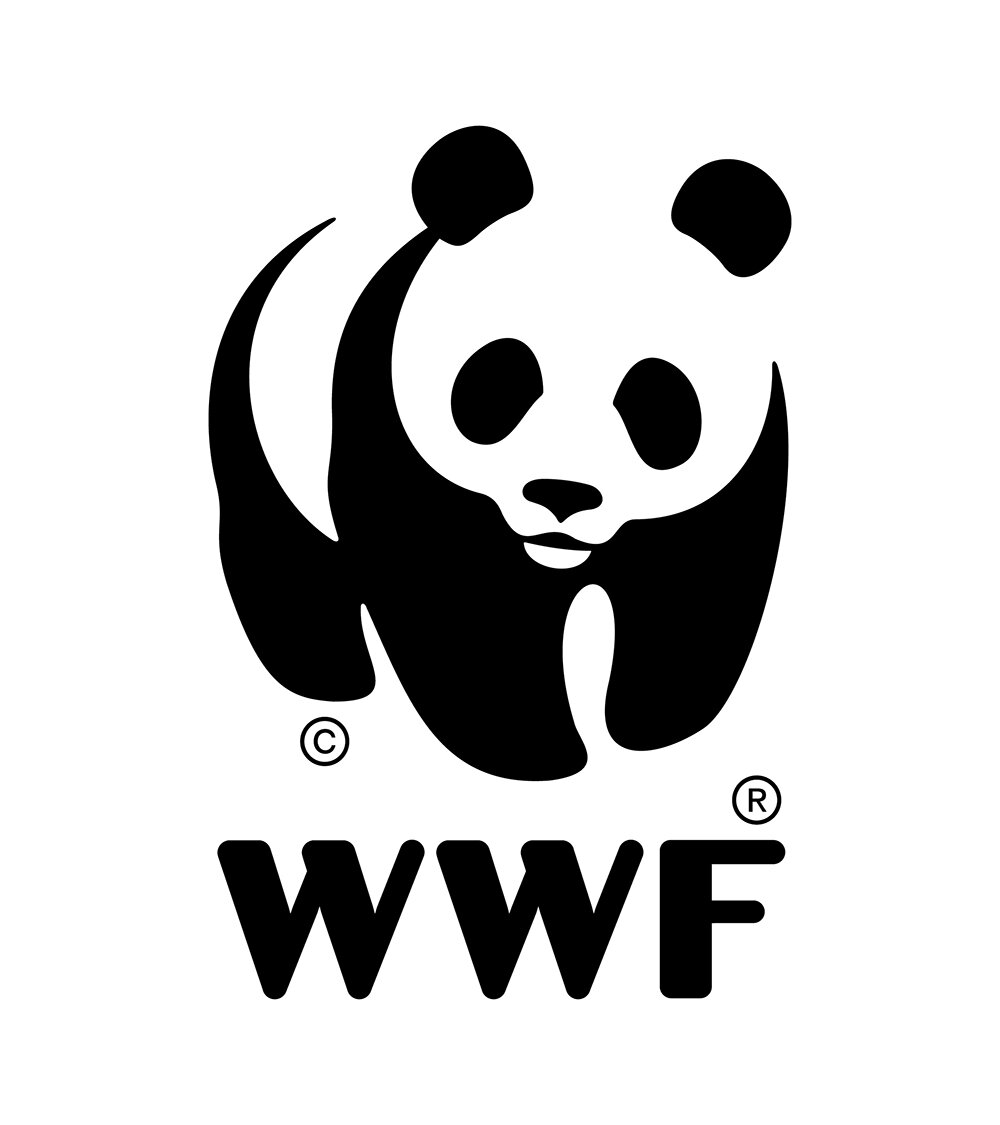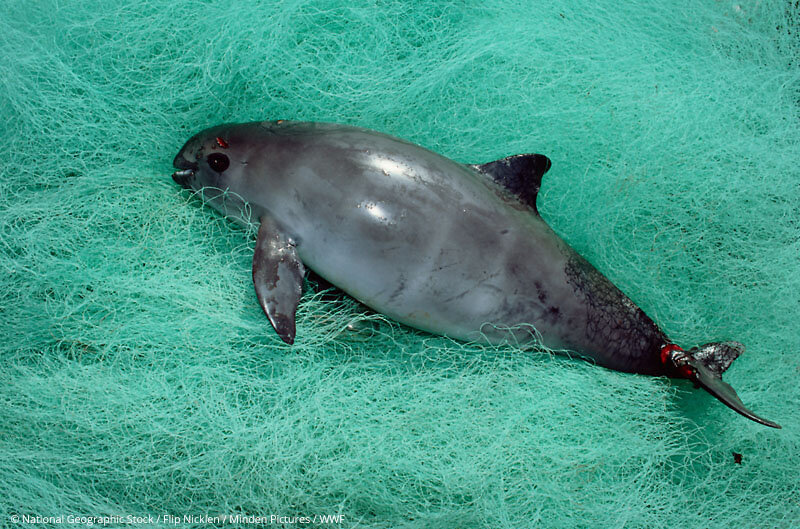
Latest news and stories about whale and dolphin conservation
Using acoustic deterrents to safeguard dolphins from bycatch in Peru
Since 2018, WWF Peru has conducted experimental trials with dolphin pingers to evaluate the reduction of dolphin bycatch in artisanal fishery gillnets.
Mitigating bycatch: Policy innovation to fight growing fisheries bycatch in the Indian Ocean
WWF is working with partners to respond to the greatest threat to whales, dolphins and porpoises worldwide. Here we highlight collaborative efforts to implement effective policies in the Indian Ocean.
Urgent action needed to conserve the endangered Irrawaddy dolphin
Due to its coastal habitat and tendency to feed near fisheries, the Irrawaddy dolphin is heavily impacted by bycatch. Large numbers of these dolphins are killed by entanglement in gillnets.
WWF: Antarctic krill provide carbon storage services worth US$15.2 billion
WWF Report: Antarctic krill provide carbon storage services worth US$15.2 billion
For a Thriving Ocean: Collective Action to Protect Whales and Dolphins
The theme of this year’s United Nations World Oceans Day on 8 June 2022 is ‘Revitalisation: Collective Action for the Ocean’. We’re highlighting the collective action between WWF’s Protecting Whales & Dolphins Initiative experts, industry, policy makers and governments around the world to safeguard our ocean giants for a thriving ocean.
Innovation and resilience offer hope for the world’s most endangered whale
Today is Endangered Species Day and we’re highlighting the North Atlantic right whale. With just 336 animals left, they are one of the most endangered whales on the planet. Technological innovation and collaboration between science and fisheries is providing newfound hope for these iconic ocean giants.
Securing a future for the Chinese white dolphin
Doris Woo of WWF-Hong Kong is working to give Chinese white dolphins the best chance to stabilise and recover.
Why we must protect North Atlantic right whales’ ‘migration superhighways’
If their population continues to decline, North Atlantic right whales may go extinct in less than 30 years. While the task is daunting, protecting their blue corridor from these major threats — including dynamic and mandatory vessel slowdowns and reduction of vertical fishing lines — is possible, and critical, to ensuring the survival of this species.
Whales on the move - mapping threats and solutions for our ocean giants
The growing dangers whales face worldwide along these epic journeys are signs of an unhealthy ocean, and reveal how the ocean connects us all.
Ambition amid a sea of paper parks
We need more of these MPAs in the ‘right places’ – where the conservation need is most urgent and where the potential for their contribution for humans and wildlife at its highest.
North Atlantic right whale population continues to decline raising alarms
Last week, experts released a new population estimate for North Atlantic right whales, raising alarm that the iconic species is at the lowest point in about 20 years, numbering only 366 individuals, an 8% decline in one year.
Fishing for the future
Umair Shahid leads WWF’s tuna fisheries work in the Indian Ocean to protect marine species, including whales and dolphins, from a range of threats including bycatch. Learn more about his work with local fishers.
Bycatch of critically endangered Baltic Sea harbour porpoise must stop
The Baltic Sea harbour porpoise is facing extinction. Only a few hundred animals are left, and under continued threat from bycatch, environmental contaminants, prey depletion and disturbance from underwater noise.
What’s in the Net – Over one million turtles, seals, dolphins and seabirds killed each year by fishing
Hundreds of thousands of endangered marine animals are dying unnecessarily every year as a result of being accidentally caught in fishing nets, according to a new report by WWF and Sky Ocean Rescue.
New report from WWF says abandoned fishing gear an “immortal menace” which must be central in the fight against plastic pollution.
So-called “ghost gear”, fishing equipment which is lost in the sea, can continue killing marine life for decades or even centuries after it first enters the ocean, making it the most deadly form of marine plastic debris. WWF is calling on governments to develop a legally binding global plastic pollution treaty that addresses this fundamental threat to marine wildlife.
















